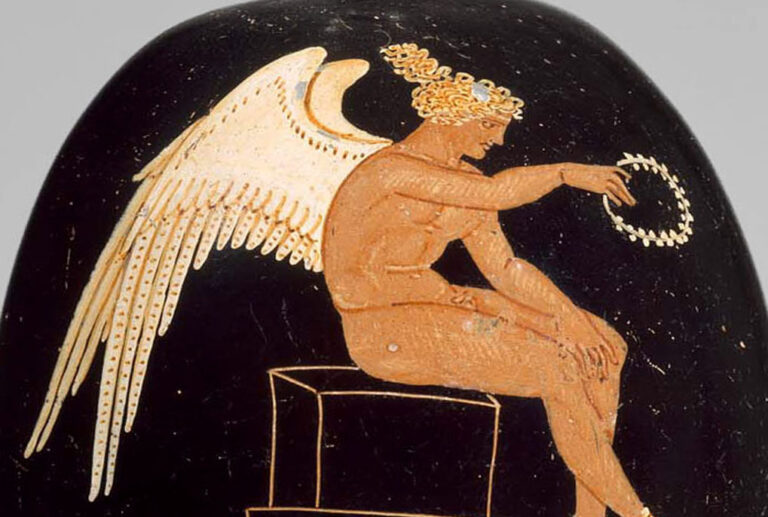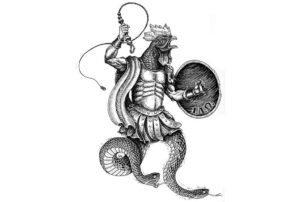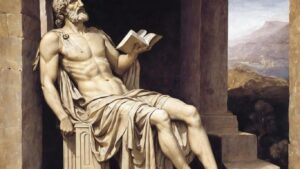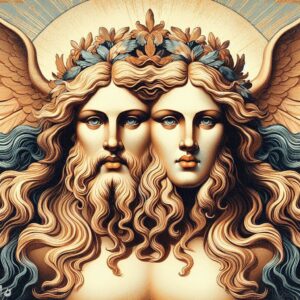Table of Contents
What is Deamon?
In mythology, a daemon served as a divine being or spirit, operating as an intermediary force between gods and humans. These daemons exhibited benevolence or indifference, and they frequently played roles in guiding or inspiring individuals. In contrast to the later Christian concept of demons as malevolent entities, Greek daemons assumed a more positive or neutral role in shaping the lives of humans.
Characteristics:
Intelligence and Guidance: Daemons, being intelligent beings, were believed to possess knowledge and wisdom that individuals could benefit from. Moreover, they could actively offer guidance to humans, sharing their accumulated insights for the betterment of individuals.
Intermediaries: Functioning as intermediaries, daemons not only conveyed messages, inspirations, and divine guidance from gods to individuals on Earth but also played a pivotal role in facilitating communication between the divine realm and humanity. In doing so, they acted as crucial links in the exchange of information and guidance.
In contrast to the later Christian perception of demons as malevolent entities, the Greeks generally considered daemons benevolent or, at the very least, indifferent. They did not view them as inherently evil and often regarded them as positive influences, contributing to a more nuanced understanding of supernatural beings.
Connection to Fate: Daemons were occasionally linked to the concept of fate or destiny. They actively participated in shaping an individual’s destiny and influencing their life path. Through their involvement, daemons played a significant role in determining the course of human lives.
Physical Description:
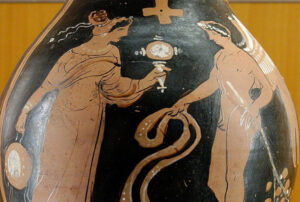
Mythology didn’t clearly define the physical appearance of daemons. They regarded daemons as spiritual beings, and as a result, people didn’t typically describe them in terms of physical characteristics or forms. The emphasis rested more on their role as intermediaries and guides.
Social Status:
Daemons did not have a specific social status in the way gods did. They operated in a realm between the divine and mortal worlds, serving as messengers and guides. While they were respected, they were not worshiped in the same manner as major deities.
Special Abilities:
Guidance: Daemons were capable of actively offering guidance and inspiration to individuals, serving as valuable sources of insight and wisdom. Additionally, their role extended beyond mere inspiration, encompassing active involvement in shaping the paths of those they guided.
Communication with the Divine: Operating as intermediaries, daemons not only offered guidance but also possessed the ability to actively communicate with the gods. In this capacity, they facilitated a direct link between mortals and celestial beings, conveying messages or requests from humans to the divine realm. This dynamic interaction contributed to a seamless connection between the earthly and divine spheres.
Related Creatures:
In Greek mythology, the concept of daemons intertwines with other spiritual beings, such as:
Gods and Goddesses: Daemons frequently served as messengers for the major deities, operating in the intermediary realm between gods and humans.
Nymphs: Nymphs, female nature spirits, were often associated with specific natural features. Although not identical to daemons, they shared some similarities in their roles as intermediaries.
Cultural Representation:
The idea of daemons was prevalent in ancient Greek culture and philosophy, influencing beliefs about fate, destiny, and the relationship between humans and the divine. While not the central focus of religious worship, the concept of daemons had a significant impact on how individuals perceived divine guidance.
In Philosophy:
Socrates, the ancient Greek philosopher, expressed the concept of a “daimonion” (a diminutive form of daemon) as a divine inner voice or intuition guiding him. This philosophical idea, known as Socratic irony, involves Socrates asserting that he possesses a divine inner guide.
Plato incorporated the idea of daemons into his philosophy, considering them as spiritual beings that influence human behavior. In “The Symposium,” Plato discusses the nature of love through the lens of daemons.
Aristotle, a student of Plato, also mentioned daemons in his works. He considered daemons as intermediate beings between the divine and mortal realms.
Modern Daemon:
In contemporary language and literature, the term “daemon” has evolved. It now metaphorically refers to computer programs that run in the background, performing various tasks. This metaphor likens these programs to unseen, helpful forces. It draws inspiration from the ancient Greek concept of benevolent spiritual entities guiding human affairs.
FAQ
What is a daemon?
In mythology, a daemon (or demon) is often depicted as a supernatural being, typically malevolent, that is associated with various cultures and religions. The concept varies across different belief systems.
How does a daemon die?
The fate or manner of a daemon's death depends on the mythology or belief system in question. In many traditions, daemons are immortal or can only be destroyed through specific means, often involving divine intervention or powerful magical forces.
How to pronounce daemon?
"Daemon" is commonly pronounced as "DEE-mun" in English. However, the pronunciation may vary slightly depending on regional accents.
What is my daemon?
The concept of a personal daemon is popularized by Philip Pullman's "His Dark Materials" trilogy. In this fictional universe, a daemon is an external manifestation of a person's soul in the form of an animal. In reality, there is no belief in personal daemons, as it is a fantasy element created for literature.
